Press mentions
Filter by...
-
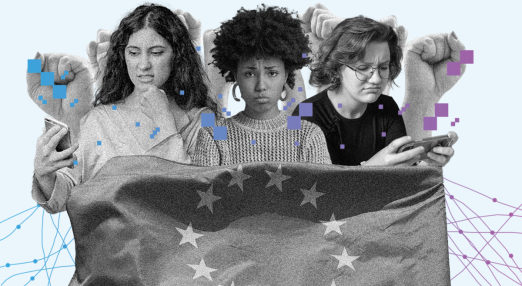
Why the EU’s GDPR ‘simplification’ reforms could unravel hard-won protections
Since it came into force almost seven years ago, the European Union (EU)'s General Data Protection Regulation (GDPR) has set the global standard for data protection. It empowers people to control their personal data while holding businesses accountable for how they collect, process, and store that data. One would imagine that all of the above would cement the GDPR, but this crucial law is being threatened by a push for profit at any cost.
Read more
-
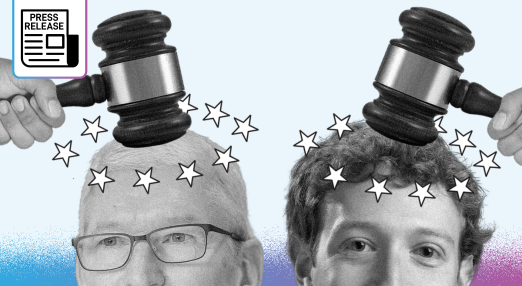
Commission slams Apple and Meta for breaching the Digital Markets Act, doesn’t stick the landing with fines
The European Commission has shown some teeth with the EU’s digital rulebook by slamming tech giants Apple and Meta with fines, and an order to stop the infringing behaviour. While we commend the strong stance, we're concerned about whether the low fines will actually lead to change of behaviour from the tech giants.
Read more
-

When data never dies: How better GDPR enforcement could minimise hate and harm
Lax enforcement of the GDPR has had far-reaching consequences for many people and collectives in the EU, especially those most vulnerable. Through a story based on real life experiences of people, this blog highlights the gap between the GDPR’s promise of protection and its current reality of weak enforcement, and the opportunity EU lawmakers have with the ongoing GDPR Procedural Regulations to take bold steps to protect our data rights.
Read more
-
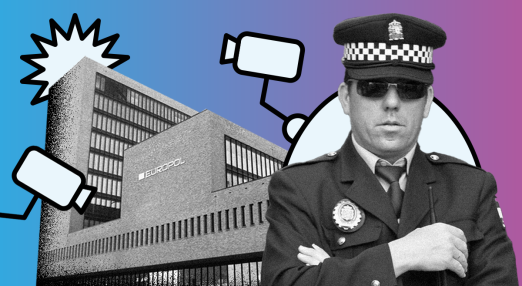
Why the new Europol regulation is a Trojan Horse for surveillance
The EU Commission’s proposal for a new Europol Regulation as part of the recast of the ‘Facilitator’s Package’ is a pretext for unchecked expansion of power and resources for Europol, the EU’s policing agency, at the expense of those they claim to protect.
Read more
-
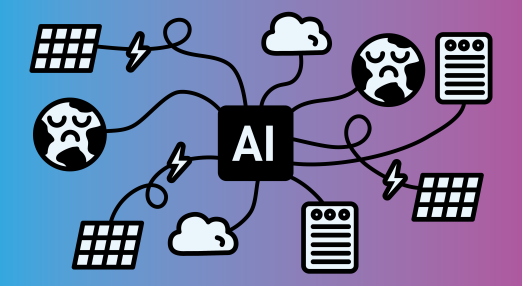
The mirage of EU techno-solutionism to the climate crisis
Technology, as shaped by today’s market-driven priorities, carries immense hidden environmental and social costs. The tech sector is one of the fastest-growing contributors to waste and energy consumption. In 2021, it was responsible for two-to-three percent of global carbon emissions — on par with aviation.
Read more
-

Why Ireland is the Achilles heel of the EU’s fightback against Big Tech
The recent controversies surrounding Big Tech moguls Elon Musk and Mark Zuckerberg — who are defying content moderation norms and accusing the EU of censorship — should come as no surprise to those following the tech industry closely. For over a decade, Big Tech has approached the EU's robust data protection framework as little more than a compliance checkbox, rather than a set of binding legal obligations.
Read more
-

Will the far right threaten Europe’s digital future?
To move away from a technosolutionist approach, it is important to envision a future where technology serves humanity, democracy, and the planet by asking the hard question of how technology enables harmful power dynamics in our society.
Read more
-

Digital futures for all
In recent years, protecting and advancing digital rights feels like a never-ending battle as more and more of our lives get entangled with the digital world. Challenges to our freedoms online and offline continue to pile up as we face tech corporations with ginormous budgets and states with carte blanche to do anything for ‘national security’ reasons.
Read more
-

It’s time for a heart-to-heart about the EU’s surveillance agenda
The EU prides itself on its worldwide norm-setting influence in the fields of data protection and artificial intelligence regulation. Still, it is not always for the best when it comes to digital state surveillance. Privacy is safety. As we approach the European elections in June, it’s time to discuss the EU's role in shaping how technologies are developed and used.
Read more
-

Privacy is not for sale: Meta must stop charging for people’s right to privacy
Ahead of a crucial opinion by the European Data Protection Board (EDPB) – a grouping of the EU’s chief privacy regulators - on Meta’s plan to charge for privacy, the European Commission has opened an investigation that we hope will cast light on the unlawfulness of Meta’s so-called ‘Pay or Okay’ model, which has become the ‘talk of the town’ in Brussels.
Read more
-
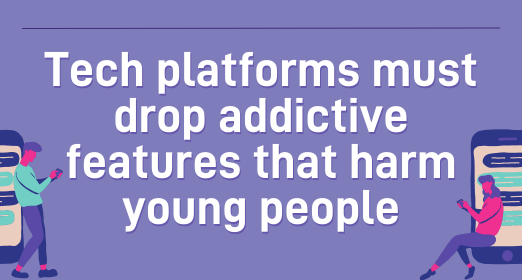
Tech platforms must drop addictive features that harm young people
Social media companies construct their platforms in ways that make them addictive. Algorithms show individuals things that they think will keep them hooked for longer.
Read more
-
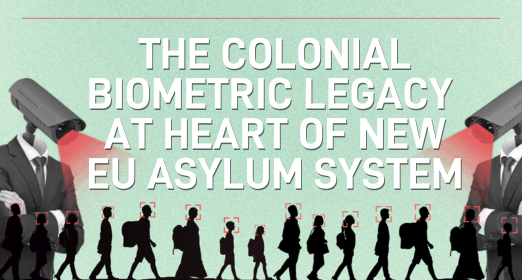
The colonial biometric legacy at heart of new EU asylum system
On Wednesday (10 April), the EU is set to vote on a new set of asylum and migration reforms. Among the many controversial changes proposed in the new migration pact, one went almost unnoticed — a seemingly innocent reform of the EU's asylum database, EURODAC. Although framed as purely technical adjustments, the reality is far more malicious. The changes to EURODAC will massively exacerbate violence against people on the move.
Read more
